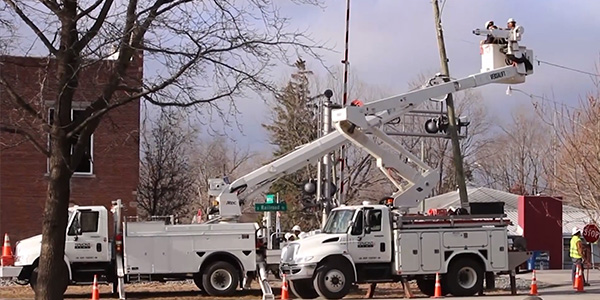FERC has sided with the Wabash Valley Power Association in a skirmish with a cooperative member over its distributed generation rules.
Tipmont Rural Electric Membership Cooperative must continue to abide by Wabash’s Distributed Generation Policy, FERC ordered Friday. The commission said Wabash’s policy is effective as of June 29 (ER20-1683-001).
The rural co-op in eastern Indiana has taken issue with Wabash’s DG supply contract since 2018, when it requested early termination of its obligations under it. Tipmont earlier this year said that Wabash’s freshly filed Distributed Generation Policy under a new tariff section was anticompetitive because it establishes Wabash as the “exclusive buyer of power from its potential distributed competitors” and limits Tipmont’s energy purchases to distributed resources of 10 kW or less, or up to 25 kW with Wabash’s approval. Tipmont is under an all-requirements wholesale power supply contract with Wabash with the exception of the small, distributed energy allotments through 2050.
FERC batted away the distribution co-op’s complaints over the contract.
“We are not persuaded by Tipmont’s interpretation of its contracts and related arguments about the anticompetitive effects of the Distributed Generation Policy. Tipmont contracted to purchase from Wabash all required electric power to operate Tipmont’s system. As Tipmont executed all-requirements contracts with Wabash, there are no provisions allowing Tipmont to transact with distributed resources,” FERC said.
However, FERC acknowledged that Tipmont is the only one of Wabash’s two dozen members that has neither adopted a resolution agreeing to abide by the DG policy nor authorized Wabash to file an implementation plan under the Public Utility Regulatory Policies Act on its behalf. Because of that, FERC directed Wabash to add language to its contract specifying that the policy only applies to non-qualifying-facility DG. The commission said the upcoming compliance filing should apply to Tipmont and “any other member who has chosen to retain its PURPA purchase obligations.”
Otherwise, FERC disagreed with Tipmont’s claim that Wabash’s distribution supply contracts only stipulate that Wabash supplies Tipmont’s “electrical needs as measured at the wholesale delivery point.” The commission said it found nothing in the contracts to support the co-op’s argument.
“We note that under this interpretation, if Tipmont were able to purchase its total energy requirements from generation located on Tipmont’s distribution system, Tipmont would no longer have any obligation to purchase energy from Wabash. This would undermine the purpose of a long-term, all-requirements contract, in which Tipmont elected to purchase all needed energy from Wabash, and Wabash agreed to fulfill Tipmont’s energy needs by making long-term arrangements,” FERC said.





